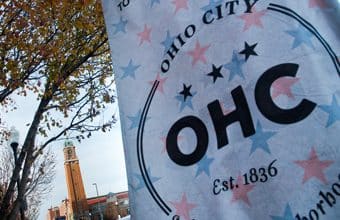It’s relatively easy to apply for a small business grant; the first thing you have to do is check for any deadlines; you might want to send in your application early enough. What next, then? Read on.
How to Apply For A Small Business Grant
Applying for a small business grant is similar to securing a business loan. Remember that each award is unique, so double-check the requirements before applying. The following is a general step-by-step approach to getting started.
#1. Confirm that you meet the requirements.
Each small company grant has its own set of standards that applicants must complete in order to be considered for the grant. Make sure you fit the fundamental program conditions, such as location, business size, industry, and match requirements, if applicable, before applying for a grant. Some may even demand that you be a member of a particular group before applying.
#2. Collect all of your organizational paperwork.
Once you’ve determined that your company qualifies for a grant, you’ll need to acquire the necessary documentation. A business plan outlining why you are requesting money and how you intend to spend them will almost certainly be required. You might also require the following:
- Employer Identification Number (EIN)
- DUNS number
- Revenue history
- Organizational chart, including the number of employees
- Bank statements
- Tax returns
- List of contracts your business holds
- Location(s) information
- Contact information
#3. Finish the grant application
Finally, you must complete the actual grant application, which will likely consume the most of your time. These forms often require small business owners to respond to open-ended questions, and the intricacy of the application varies based on where you apply for a grant.
You may be required to describe why you require the funding, your plan for the money if you win, the history of your company, or how your company contributes to your community. Depending on the grant you’re asking for, these questions can be technical and specific, and they’re an opportunity to make your application stand out from the crowd.
That’s all about applying for a small business grant. If you’re still unsure about what a small business grant is, here’s a quick rundown:
What is A Small Business Grant?
A grant is money given by a federal, state, county, or local government to an individual, business, or corporation. Private corporations or businesses may also give out financial awards, as many did during the COVID-19 pandemic.
Grants do not need any type of payback. They are an appealing choice for entrepreneurs and small or internet enterprises that have limited funds for growth or expansion.
Grants are available for many types of small business entrepreneurs, including women, minorities, veterans, and the disabled.
A grant is typically made available when a government agency, non-profit, or private corporation decides to set aside award funds for a specific area of concern. These are some examples:
- Grants for minority-owned businesses
- Grants for young entrepreneurs
- Grants for startups
- Grants for veterans
- Grants for women entrepreneurs
Types of Small Business Grants
A wide range of sponsors offer small business grants. The federal government, your state government, and some corporations are the three major sources.
Federal Government Grants for Small Businesses
The federal government of the United States provides grants and loans to small businesses through a variety of departments and agencies. Grants.gov is a single location where you can learn about many of them, search for ones you may be eligible for, and apply for them. The following are major federal funding sources for small businesses:
#1. U.S. Small Business Administration (SBA).
The SBA is most known for its loan program, through which it backs private lender loans to small firms, but it also operates a modest grants program. While it states that it “does not provide grants for starting and expanding a business,” its Small Business Innovation Research (SBIR) and Small Business Technology Transfer (STTR) programs “encourage small firms to undertake scientific research that contributes to federal R&D objectives and has a high potential for commercialization if successful.”
The SBA also funds the State Trade Expansion Program (STEP). STEP funds states and U.S. territories to provide grants and other financial help to small firms wishing to export globally.
#2. U.S. Department of Health and Human Services (HHS).
The Office of Small and Disadvantaged Business Utilization (OSDBU) of the Department of Health and Human Services awards grants to small businesses that meet its criteria. Its programs are designed to assist small businesses in competing for federal contracts, with a focus on socially or economically disadvantaged people (the 8(a) Business Development Program), historically underutilized business (HUB) zones (HUBZone Program), and women-owned businesses (WOSB and Economically Disadvantaged Women-Owned Small Businesses (EDWOSB) programs, among others. HHS claims that it “distributes the most grant funding of any federal agency,” including its small business initiatives.
#3. U.S. Department of Agriculture (USDA)
The USDA directly or indirectly provides a wide range of financial aid programs for farmers, ranchers, and other agricultural producers. For example, the USDA Rural Development Business Program collaborates with lending institutions and community-based organizations to provide grants, loans, and loan guarantees to rural residents and companies.
Again, Grants.gov has information on all of these programs and many more.
State Grants for Small Businesses
State and local governments can also offer small company grants using federal funds, their own resources, or a mix of the two.
The State Small Business Credit Initiative (SSBCI) of the United States Department of the Treasury, for example, distributes financing to states, territories, and tribal governments, which they then utilize to promote small businesses through cash grants and other means. For example, Ohio stated in late 2022 that it was in line for up to $182 million in SSBCI financing.
Oregon’s Export Promotion Program, which is partially supported by the federal Small Business Administration’s STEP program, provides subsidies to small firms so that they can participate in international trade fairs and trade missions.
Two helpful resources for finding grant opportunities in your state are the Council for Community and Economic Research’s State Business Incentives Database and the Small Business Development Center servicing your area.
Corporate Grants for Small Businesses
Grants are also given to small enterprises by some firms and non-profit groups. Aside from money, many of these organizations provide mentoring and other perks to the winners. Here are a few examples:
Amazon Business Small Business subsidies, for example, provides subsidies to customers with less than $1 million in annual revenue. This award program, like many others, is exceedingly competitive. It planned to provide 15 awards ranging from $15,000 to $25,000 in 2023; in 2022, it received over 19,000 grant applications.
The FedEx Small firm Grant Contest provides funds to a restricted number of small enterprises in the United States “to be applied towards growing or enhancing their business.” The company must be a FedEx customer with a valid FedEx business shipping account number and fewer than 99 workers to be eligible. It made ten awards for 2023.
Visa’s She’s Next Grant Program awards $10,000 grants to 60 Black women-owned businesses in six cities across the United States. The firm also sponsors similar award programs in a number of other nations.
As with state-funded grants, the SBA-sponsored Small Business Development Center in your area is a terrific location to start looking for corporate or nonprofit funding.
The maximum amount for most 7(a) SBA loans is $5 million.
Eligibility for Small Business Grants
Grants for small businesses, as mentioned in the preceding sections, are highly competitive and frequently limited to a specific type of firm or business owner. So, your first step in qualifying for a grant is to limit the list down to grants that appear to be a suitable match.
Following that, you should carefully review the application for each grant program, take the time to thoroughly fill it out, and make sure you include any documents or other backup that the application requests. With so many applications competing for a limited number of awards, you don’t want to be disqualified based on a minor technicality.
Some award programs also feature prior grant recipients on their websites. This might help you understand what the administrators are looking for and promote your company correctly.
The Advantages of Small Business Grants
The biggest benefit of using small business grants is that they do not have to be repaid. This is good news for many small firms that may be experiencing financial issues that make it difficult to repay a standard business loan.
Another advantage is that information on small company grants is quite easy to locate online. Doing some preliminary research may help you avoid grants for which you are ineligible and target awards for which you are most likely to win. There are various free resources that can direct you to the many grants that are available:
- The Small Business Administration (SBA) provides a limited number of grants to eligible community organizations and enterprises in specified industries to promote entrepreneurship. The SBA, on the other hand, does not provide subsidies for beginning or developing a firm.
- Grants.gov contains a wealth of information about government small business grants. This one-stop shop for federal grant seekers provides access to over 1,000 grant programs that give over $500 billion each year. The site offers a simpler approach for submitting electronic applications, with the goal of making it easier to identify and apply for federal grants. It also features a customer service team and an app.
- The Small Business Innovation Research Program (SBIR) is a federal funding program for small businesses that is overseen by the SBA and focuses on federal innovation and research. Grantees must meet conditions such as US citizenship and staff count.
- The Small Business Technology Transfer Program (STTR) focuses on research and development, as well as bridging the gap between fundamental science performance and commercialization of subsequent discoveries. Its purpose is to help small enterprises transfer technology generated by academic institutes.
Do Banks Give Loans To Start A Business?
Small company loans are not available from all banks. However, there are thousands of possibilities between huge national banks, tiny local or regional banks, and credit unions — both physical and online. The goal is to analyze possibilities and assess each institution’s loan needs.
Who Is Eligible for US Business Grants?
A business must already be in operation to be eligible for U.S. business grants, as well as taxes in good standing and no outstanding tax amounts or liens; an owner who is the majority owner of the business as well as the decision-maker; a business owner who earns their main income from this business; and an owner who can prove their eligibility by providing government-issued identification.
Can You Borrow Money From the Government to Start a Business?
Yes, you can obtain government funding to start a firm through the U.S. Small firm Administration (SBA). The SBA offers a variety of loans with varying restrictions, the majority of which require that a firm already exist.
What Are the Drawbacks of a Grant?
The main disadvantage of a business grant is that the money must be used in a specified way; you cannot use the money as you like. However, this isn’t usually a disadvantage because when you apply for a grant, you know why you’re applying and what the money will be used for, and this will influence whether or not you get the grant based on the grant donor’s requirements.
In Conclusion,
Grants are essentially free money that you should pursue if you believe your small business meets the exact conditions for them. Even in that situation, keep in mind that grants are quite competitive, so keep alternative funding options in mind as well.
- Grant Management Software: Top 10 Options For Nonprofits
- How To Get Free Money From The Government
- WHAT IS A GRANT: Best 2023 Guide and US Practices
- Where to Get Free Money to Start a Small Business






